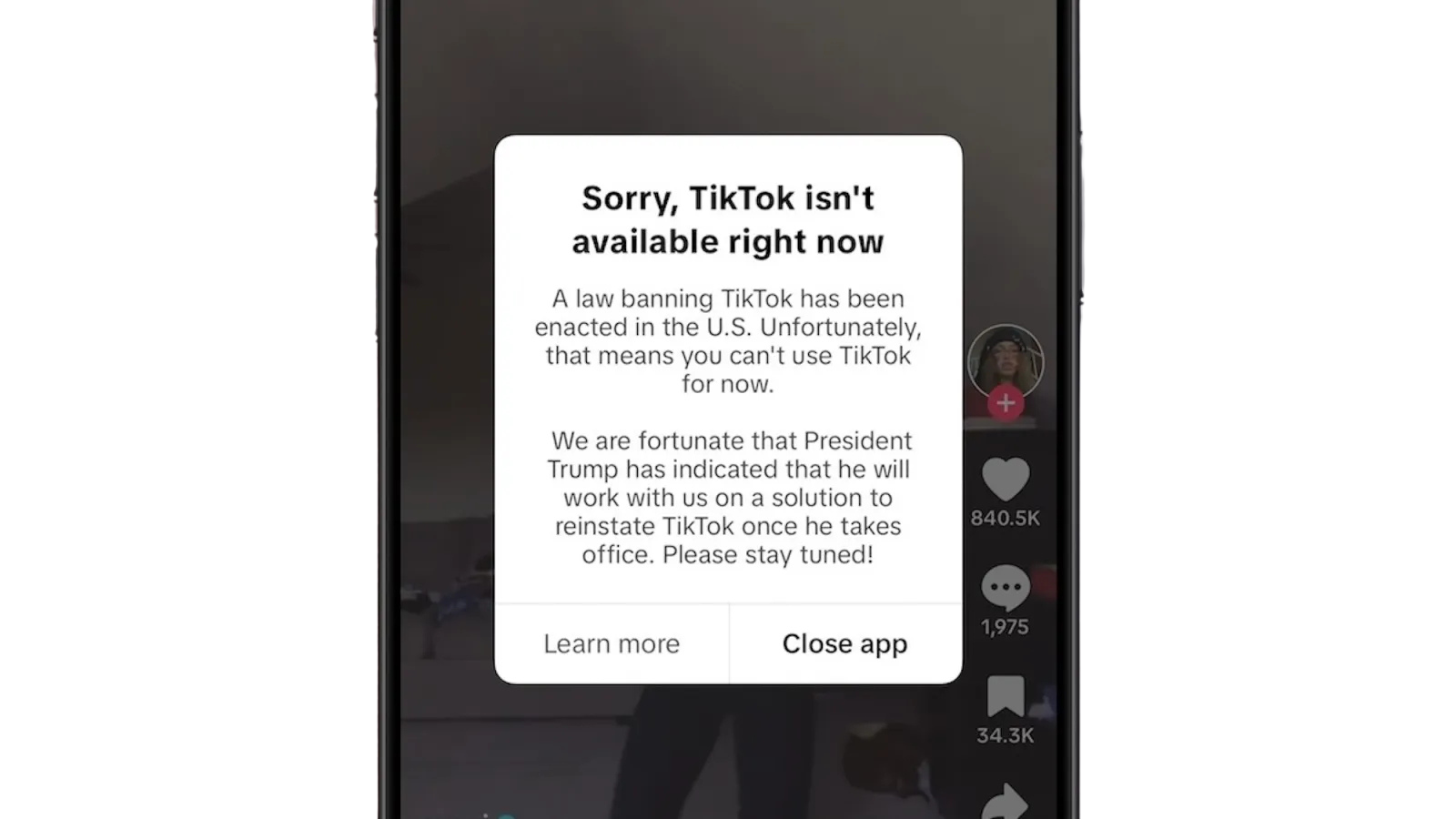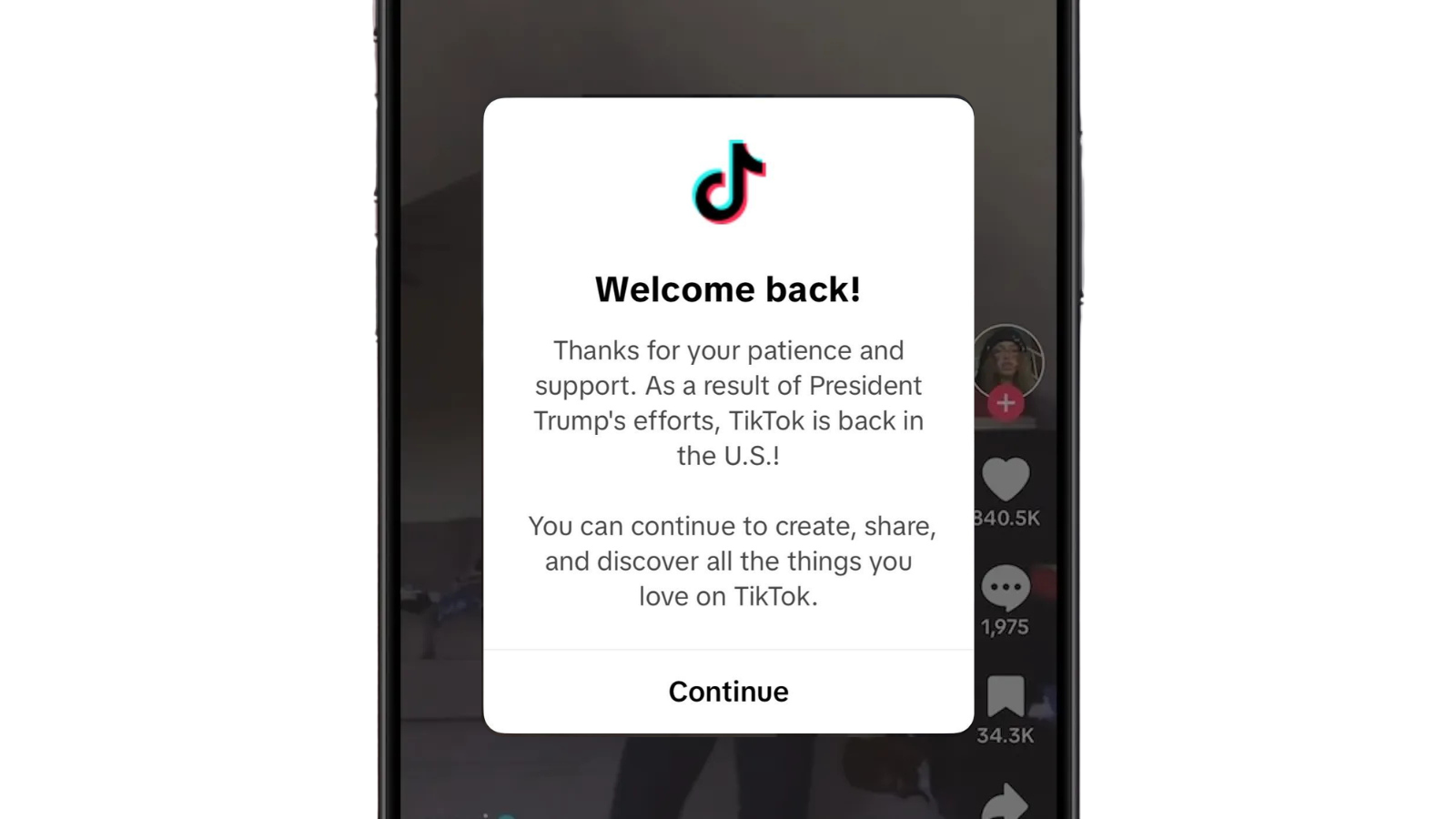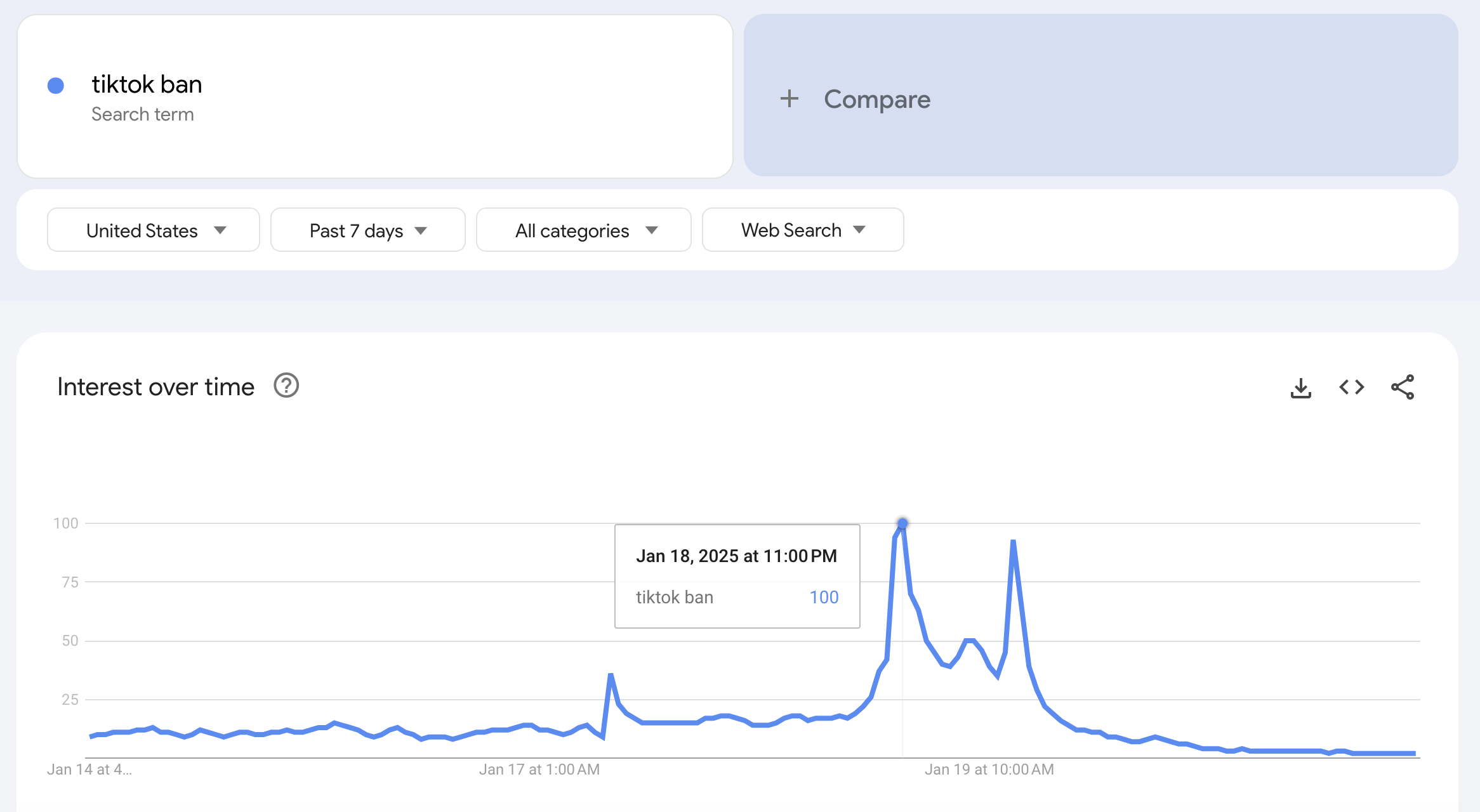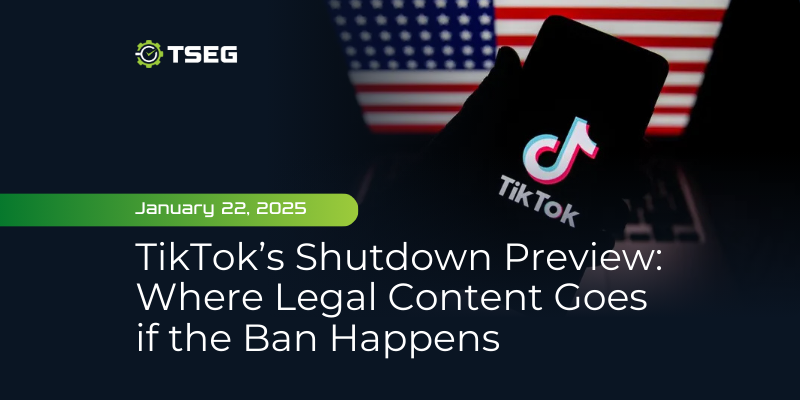TikTok’s Shutdown Preview: Where Legal Content Goes if the Ban Happens
Posted on Wednesday, January 22nd, 2025 at 11:27 pm
A Preview of the TikTok Ban
This past weekend, TikTok experienced a temporary shutdown in the U.S., leaving millions of users unable to access the app over the weekend. Late Saturday, TikTok began displaying a message to users stating that its services were “temporarily unavailable.” The shutdown came ahead of a federal ban that was set to take effect, throwing the app’s future into further uncertainty.

By Sunday at noon, TikTok started restoring functionality, working to bring the platform back online. A pop-up message in the app welcomed users back with a statement crediting President Trump for it’s return.

The shutdown and subsequent restoration unfolded against a chaotic backdrop of legal battles, political debates, and national security concerns. While TikTok is back for now, the app’s future in the U.S. remains in question, especially as lawmakers continue to push for greater scrutiny over its parent company, ByteDance.
For attorneys, this brief disruption was a stark reminder of how social media platforms—even ones with 170 million U.S. users—are vulnerable to external forces beyond their control. TikTok has become a vital resource for legal professionals to educate audiences, provide accessible legal insights, and connect with clients. However, the incident highlights why firms should consider diversifying their digital marketing strategies to avoid over-reliance on any single platform.
The Immediate Reaction
The moment TikTok went dark in the U.S., users didn’t waste time searching for alternatives. Reports showed a staggering 5,000% increase in searches for TikTok competitors almost instantly, proving just how central short-form video content has become in the daily lives of millions. This spike wasn’t just a fluke—it revealed where users are most likely to migrate if TikTok becomes unavailable in the future.

TikTok Alternatives
Among the platforms that saw a surge in interest were YouTube Shorts, Instagram Reels, Clapper, Lemon8, and Triller. Each of these platforms has a unique appeal, but they all share one commonality: they provide the short-form, visually engaging content that users have come to expect.
-
- YouTube Shorts: As a feature of YouTube, a platform already well-known for its long-form content, Shorts provides a reliable space for attorneys to create quick, impactful videos. Many lawyers are already thriving here by sharing bite-sized tips about legal rights, answering common client questions, and even breaking down high-profile legal cases in under a minute. The integration with YouTube’s broader ecosystem makes Shorts a great option for attorneys looking to reach both short-form and long-form audiences.
- Instagram Reels: Known for its polished and visually appealing content, Instagram Reels is ideal for attorneys who want to showcase professionalism while educating potential clients. Think short “Did You Know?” clips about legal processes or creative “myth-busting” videos that clarify common misconceptions about the law. Reels is also perfect for firms that prioritize building a strong brand image since the platform rewards high-quality, well-edited content.
View this post on Instagram
- Clapper: This smaller, more niche platform prioritizes community-driven content, which could work well for attorneys with specific practice areas. For example, lawyers specializing in family law or small business matters could thrive here by engaging directly with highly focused audiences. Without the overwhelming competition seen on larger platforms, Clapper offers attorneys the chance to establish themselves as thought leaders within their niche.
-
- Lemon8: A visually stunning app that blends elements of Instagram and Pinterest, Lemon8 is ideal for attorneys looking to focus on branding and storytelling. This platform caters to an audience that appreciates aesthetic content, which makes it an excellent choice for firms that want to share behind-the-scenes glimpses of their work, highlight client success stories (while respecting confidentiality), or provide infographic-style legal tips.
- Triller: Originally geared toward music and entertainment, Triller is beginning to carve out space for professionals. While this app may be less intuitive for attorneys at first, its focus on creative video content presents opportunities for those willing to experiment. Law firms could use Triller to produce engaging, out-of-the-box videos—such as collaborations with other professionals or “day-in-the-life” clips to humanize their practice.
Each of these platforms has distinct characteristics, but they all provide an opportunity for attorneys to adapt their content strategies and continue building meaningful connections with their audiences. While TikTok remains the reigning champion of short-form video, exploring these alternatives now will help law firms diversify their outreach and avoid disruptions in the event of a future ban.
What Attorneys Can Learn From the TikTok Outage
The TikTok outage didn’t just reveal where users might go next; it offered an important lesson for attorneys: relying on a single platform for marketing is risky. While TikTok has been an incredible tool for connecting with younger audiences and showcasing legal expertise, it’s clear that social media trends can shift rapidly—whether due to government actions, platform changes, or user preferences.
For law firms, this is a reminder to prioritize diversification when it comes to digital marketing. Having an established presence on multiple platforms ensures that your messaging reaches your audience no matter where they are. This doesn’t mean copying the same content across platforms, though. Each app has its own culture, features, and audience expectations, meaning the most effective firms will create tailored strategies for each.
Another key takeaway is the need to stay agile. Attorneys who were already active on platforms like Instagram Reels or YouTube Shorts had an immediate advantage when TikTok went offline. They didn’t have to scramble to find their audience—they were already there. Law firms that want to prepare for potential disruptions should begin experimenting with alternative platforms now, so they’ll have time to learn what works best and establish a following.
The outage also highlighted the importance of understanding your audience’s behavior. For example, Clapper’s growth suggests that some users are looking for smaller, more personal online communities, while Lemon8’s rise points to a demand for aesthetic and visual storytelling. By recognizing these patterns, attorneys can better align their content strategies with audience preferences.
Ultimately, the TikTok outage showed that success in digital marketing doesn’t depend on one platform—it’s about staying flexible, proactive, and engaged with your audience across multiple channels.
Stay Ahead With TSEG
For attorneys, the TikTok outage was a reminder that the digital marketing world can change overnight. Whether TikTok faces a permanent ban or other platforms rise to take its place, the most successful law firms will be those that prepare now. No platform is guaranteed to stick around forever. But with the right approach, attorneys can stay connected to their audience and even turn uncertainty into opportunity. By diversifying your presence, crafting platform-specific content, and focusing on engagement, your firm will be well-positioned to thrive—no matter what the future of social media holds. Let TSEG help your law firm today.
